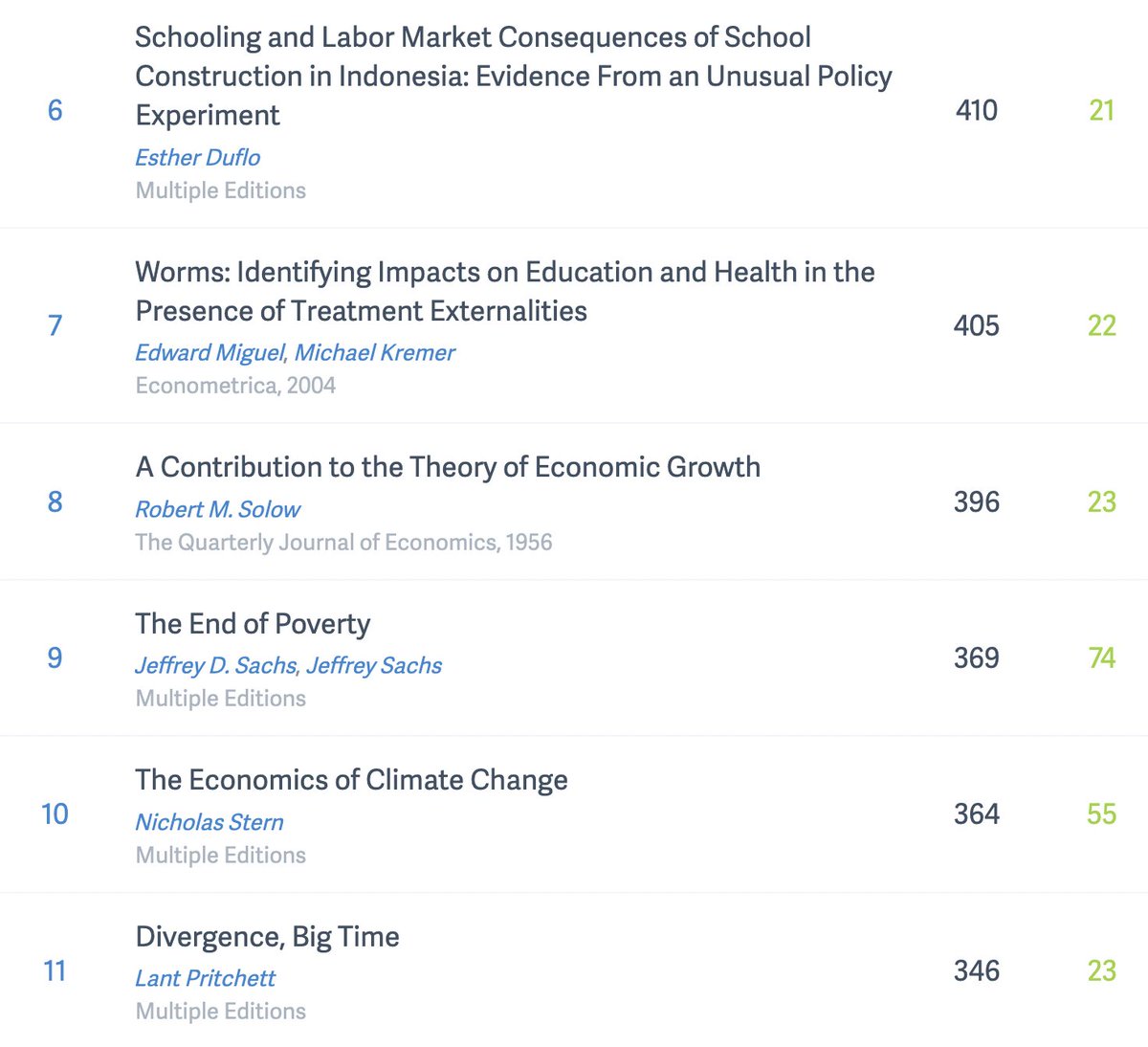
Economic historian, runner, 🇨🇦. PhD student @NUEconomics.
Newsletter-writer, sometimes: https://t.co/qB881MiDur
How to get URL link on X (Twitter) App


 2) Apologies, one more military history. Meyer's *A World Undone* applies the grace, poignancy, and raw excitement of Barbara Tuchman to the entirety of World War I. Listened to as an audiobook, which is brilliantly narrated by Robin Sachs.
2) Apologies, one more military history. Meyer's *A World Undone* applies the grace, poignancy, and raw excitement of Barbara Tuchman to the entirety of World War I. Listened to as an audiobook, which is brilliantly narrated by Robin Sachs. 


 Indeed, the spread of literacy was remarkably rapid.
Indeed, the spread of literacy was remarkably rapid. 

 In the 'rude state of nature' without foreign trade, pop. growth stagnates, but with it, pop. growth and demand for land increase; falling land abundance => development of private property rights + creation of a landless wage laboring class. Agrarian capitalism is owed to trade.
In the 'rude state of nature' without foreign trade, pop. growth stagnates, but with it, pop. growth and demand for land increase; falling land abundance => development of private property rights + creation of a landless wage laboring class. Agrarian capitalism is owed to trade. 

 For a relatively rigorous perspective on the war's geopolitics, tactics, and grand strategy, John Keegan's *The First World War* is an exemplar of tight prose and studied analysis. Especially good on the opening battlefield moves in August 1914 and on the tragedy in Gallipoli. 2/
For a relatively rigorous perspective on the war's geopolitics, tactics, and grand strategy, John Keegan's *The First World War* is an exemplar of tight prose and studied analysis. Especially good on the opening battlefield moves in August 1914 and on the tragedy in Gallipoli. 2/ 

 For over five decades, Wrigley was a titan among economic historians of Britain's Industrial Revolution—an area where it's hard to stand out. He was a pioneer of quantitative methods in Britain, at a time when the cliometric revolution was mostly an American phenomenon.
For over five decades, Wrigley was a titan among economic historians of Britain's Industrial Revolution—an area where it's hard to stand out. He was a pioneer of quantitative methods in Britain, at a time when the cliometric revolution was mostly an American phenomenon.

 Real wages declined because fertility rose with living standards (and not because of enclosure or pro-natal policy, Jason).
Real wages declined because fertility rose with living standards (and not because of enclosure or pro-natal policy, Jason). 

 Here's 6-11...
Here's 6-11... 



 2/ In 1879, Canadian prime minister John A. Macdonald responded to the "long depression" of the 1870s by implementing the campaign plank that had won him office in 1878: the National Policy, a development program founded on western settlement, railroad building, and protection.
2/ In 1879, Canadian prime minister John A. Macdonald responded to the "long depression" of the 1870s by implementing the campaign plank that had won him office in 1878: the National Policy, a development program founded on western settlement, railroad building, and protection. 

 Rodrik: "The inescapable conclusion is that the proximate determinant of the East Asia miracle is capital accumulation rather than an increase in industrial TFP."
Rodrik: "The inescapable conclusion is that the proximate determinant of the East Asia miracle is capital accumulation rather than an increase in industrial TFP." 










 Most pre-industrial societies were caught in a devastating low-level equilibrium trap: they had small cities (in absolute and relative terms) and unproductive agriculture (low crop yields and labor efficiency). 2/
Most pre-industrial societies were caught in a devastating low-level equilibrium trap: they had small cities (in absolute and relative terms) and unproductive agriculture (low crop yields and labor efficiency). 2/